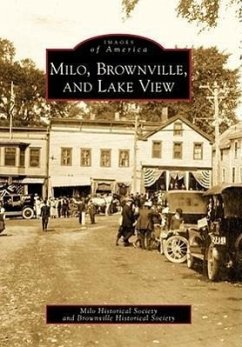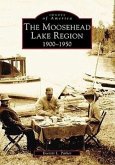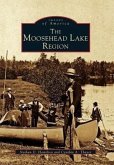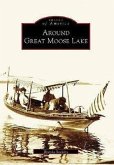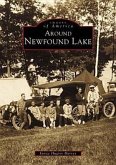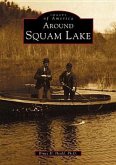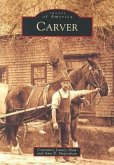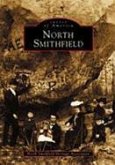In the wilderness of Piscataquis County, rich in river power and vast with untouched forests, three communities were born. Although each is close in proximity, Milo, Brownville, and Lake View have unique histories and personalities. Milo's beginnings are based on the legend of young Theophilus Sargent, who faced the wild alone, almost perishing but for the kindness of a Native American chief and his son, Attean. One hundred years later, this survival story became the basis for Elizabeth George Speare's book Sign of the Beaver. Along with its grist- and sawmill industries, Brownville's slate quarries were prolific and offered Welsh immigrants a wealth of employment. Lake View Plantation was born because of timber. Merrick Thread Company built a spool mill near Schoodic Lake, whose shores were abundant with birch, and even after the mill closed the community of Lake View remained. Its small permanent population now swells to more than 1,000 in the summer as visitors flock to the beautiful shores of natural spring-fed Schoodic Lake.
Hinweis: Dieser Artikel kann nur an eine deutsche Lieferadresse ausgeliefert werden.
Hinweis: Dieser Artikel kann nur an eine deutsche Lieferadresse ausgeliefert werden.

